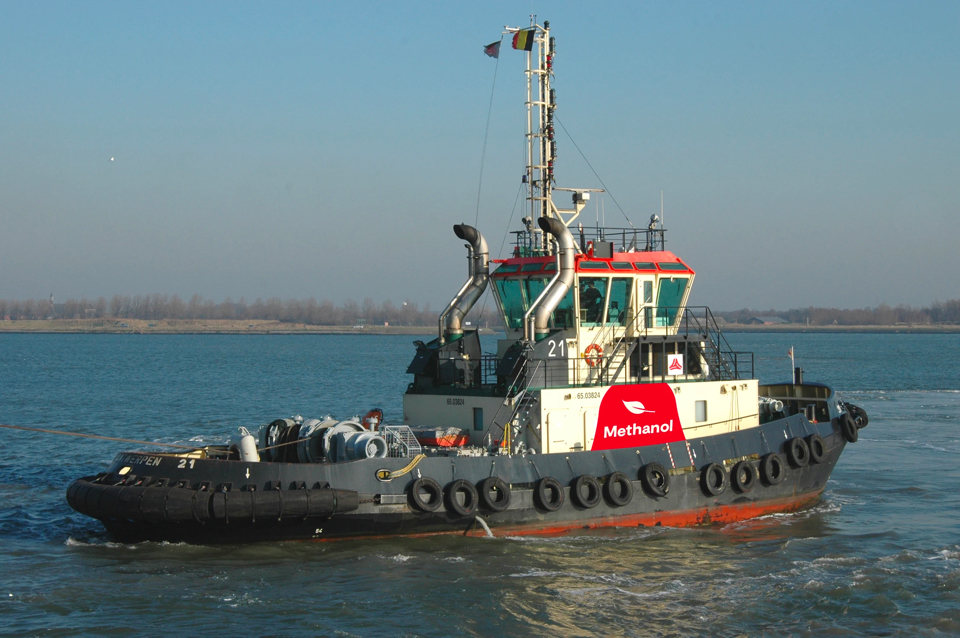A new consortium including ABC Engines, the Port of Antwerp, Meyer Werft and Lloyd’s Register seeks to commercialise medium- and high-speed methanol-fuelled engines for shipping. The Fastwater project is to demonstrate the feasibility of this fuel for both retrofit and newbuild vessels.
With funding from the European Commission, Fastwater will focus on high impact outcomes, designing solutions for existing ships and designs for newbuildings, demonstrating methanol as a future-proof marine fuel to create a fast track to carbon neutral shipping.
Tug, pilot boat, coast guard vessel and retrofit kit
Consortium members will demonstrate feasibility on three vessels running on methanol fuel: a harbour tug, a pilot boat, and a coast guard vessel. A conversion concept for a river cruise ship using methanol-driven propulsion will also be developed and a universal, scalable retrofit kit for converting diesel-fuelled ships to methanol use for a wide power range (200 kW-4 MW) will be validated.
In addition, Fastwater will provide training programmes for vessel crew and portside staff, develop rules and regulations for methanol marine fuel use, demonstrate the complete value chain for bunkering methanol – including net carbon neutral renewable methanol – elaborate a business plan, and identify CO2 and conventional pollutant reductions facilitated by the next generation methanol propulsion systems.
‘The Fastwater consortium members bring a strong track record with methanol projects to this effort, which will address current bottlenecks that are hindering the use of methanol as a fuel for waterborne transport,’ says project manager Prof. Sebastian Verhelst of Lund University and Gent University. ‘Fastwater will put more methanol-fuelled vessels on the water and showcase retrofit technologies that will serve as lighthouse projects supporting wider commercial introduction.’








